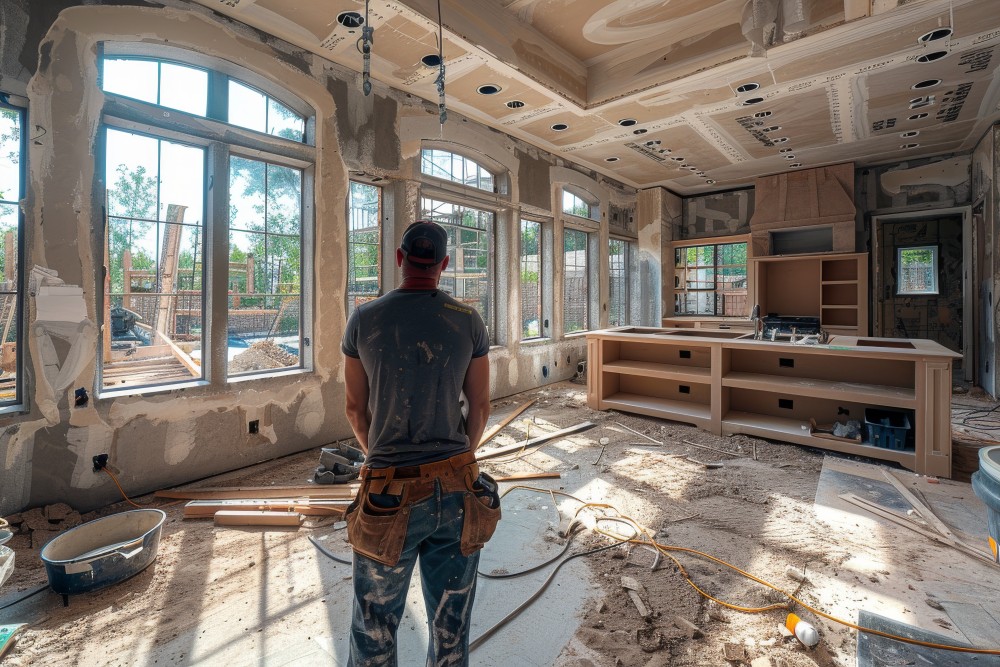1. Do Your Research
Verify Credentials
- Licensing: Ensure the contractor is licensed to operate in your state. You can verify this information through your state’s licensing board.
- Insurance: Confirm that the contractor has adequate insurance, including general liability and workers’ compensation insurance. This protects you from liability in case of accidents or damages during the project.
Check References and Reviews
- References: Ask the contractor for references from previous clients. Contact these references to inquire about their experiences.
- Online Reviews: Look up reviews on trusted websites such as Yelp, Google, and the Better Business Bureau (BBB). Pay attention to both positive and negative feedback.
Professional Associations
- Memberships: Verify if the contractor is a member of professional associations such as the National Association of the Remodeling Industry (NARI) or the National Association of Home Builders (NAHB). Membership in such organizations often indicates a commitment to professionalism and continuing education.
Join HICP Homeowner’s Alliance
Connect with experts, get special discounts and enjoy member benefits
2. Get Multiple Quotes
Compare Estimates
- Detailed Quotes: Obtain detailed written estimates from at least three different contractors. Ensure each quote includes a breakdown of materials, labor, and any other costs.
- Scope of Work: Ensure that the scope of work is clearly defined in each estimate to make accurate comparisons.
Be Wary of Low Bids
- Too Good to Be True: Be cautious of significantly low bids. These can be a red flag for potential fraud, as the contractor may cut corners or add hidden costs later.
- Realistic Pricing: Choose a contractor who provides a reasonable and realistic estimate based on your project’s requirements.
3. Verify the Contract
Written Agreement
- Detailed Contract: Ensure that you have a detailed written contract before any work begins. The contract should include the scope of work, materials, timeline, payment schedule, and any other relevant details.
- Signatures: Both you and the contractor should sign the contract, and each party should retain a copy.
Review Terms and Conditions
- Payment Schedule: Avoid paying large upfront payments. Instead, structure payments to align with project milestones.
- Change Orders: Include a clause outlining the process for change orders, ensuring any changes to the scope of work or costs are documented in writing and signed by both parties.
4. Monitor the Project
Regular Inspections
- Site Visits: Visit the project site regularly to monitor progress and ensure work is being completed to your satisfaction.
- Communication: Maintain open lines of communication with the contractor to address any issues promptly.
Document Everything
- Written Records: Keep detailed records of all communications, payments, and changes to the project. This documentation can be crucial in resolving disputes.
- Photographic Evidence: Take photos of the project at various stages to document progress and any potential issues.
5. Know Your Rights
Consumer Protection Laws
- State Laws: Familiarize yourself with your state’s consumer protection laws related to home improvement projects. These laws can provide you with additional protections and recourse in case of fraud.
- Right to Cancel: Many states have a “right to cancel” period, typically three days, during which you can cancel the contract without penalty.
Dispute Resolution
- Mediation and Arbitration: Include a clause in your contract specifying how disputes will be resolved, such as through mediation or arbitration, before taking legal action.
- Legal Action: If necessary, be prepared to seek legal advice and pursue legal action to protect your interests.
6. Red Flags to Watch For
Unsolicited Offers
- Door-to-Door Sales: Be wary of contractors who approach you unsolicited, especially if they claim to have leftover materials from another job.
- High-Pressure Tactics: Avoid contractors who pressure you to make quick decisions or sign contracts immediately.
Lack of Written Documentation
- Verbal Agreements: Never rely solely on verbal agreements. Insist on a written contract that details all aspects of the project.
- No Permits: A reputable contractor will obtain the necessary permits for your project. Be cautious if a contractor suggests skipping permits to save time or money.
Payment Demands
- Large Upfront Payments: Avoid contractors who demand large upfront payments. A reasonable down payment is typically 10-15% of the total project cost.
- Cash Only: Be wary of contractors who insist on cash payments. Using checks or credit cards provides a payment trail that can be useful in case of disputes.
Conclusion
Protecting yourself from fraudulent contractors requires vigilance, thorough research, and clear communication. By verifying credentials, getting multiple quotes, ensuring a detailed contract, and monitoring the project closely, you can significantly reduce the risk of falling victim to contractor fraud. Remember to stay informed about your rights and be proactive in addressing any issues that arise. By taking these steps, you can ensure your home improvement project is completed successfully and to your satisfaction.



















